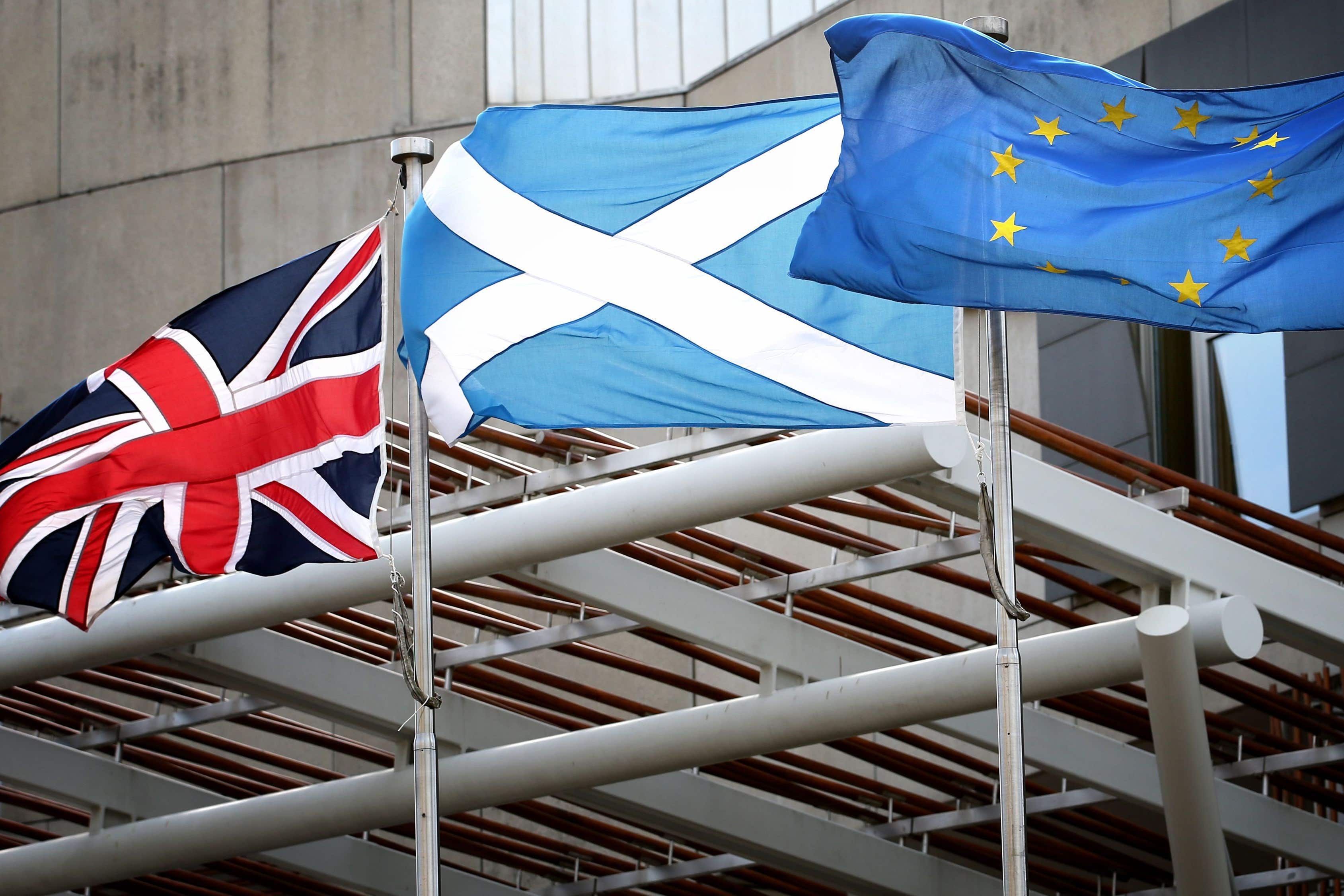SNP manifesto ignores big fiscal challenges post-independence, says think tank
The Institute for Fiscal Studies has released its initial reaction to the SNP’s plans.

Your support helps us to tell the story
From reproductive rights to climate change to Big Tech, The Independent is on the ground when the story is developing. Whether it's investigating the financials of Elon Musk's pro-Trump PAC or producing our latest documentary, 'The A Word', which shines a light on the American women fighting for reproductive rights, we know how important it is to parse out the facts from the messaging.
At such a critical moment in US history, we need reporters on the ground. Your donation allows us to keep sending journalists to speak to both sides of the story.
The Independent is trusted by Americans across the entire political spectrum. And unlike many other quality news outlets, we choose not to lock Americans out of our reporting and analysis with paywalls. We believe quality journalism should be available to everyone, paid for by those who can afford it.
Your support makes all the difference.The SNP’s manifesto ignores the “big fiscal challenges” an independent Scotland would immediately face, a think tank has said.
The Institute for Fiscal Studies (IFS) has released its initial reaction to the SNP manifesto following the party’s launch event on Wednesday.
First Minister John Swinney and the SNP have previously quoted from IFS analysis, in particular its assessment of the implied spending reductions in unprotected departments contained in the Tory and Labour plans.
The SNP has called for more spending by the UK Government, saying the NHS should receive a £10 billion top-up which would result in an extra £1.6 billion for the Scottish Government.
The party’s manifesto also demands the full devolution of tax powers to Scotland, and the extension of the windfall tax to companies making excess profits “rather than the raid on the north east of Scotland proposed by Labour and the Tories”.
IFS associate director David Phillips said: “The SNP manifesto calls for UK-wide spending plans to be topped up.
“This is to avoid the need to cut spending on unprotected areas, and to increase spending on, in particular, the NHS, working-age benefits, overseas aid and green investment.
“They argue that the cost of this could be met by UK-wide tax rises, additional economic growth from the UK rejoining the EU in the coming Parliament, and additional borrowing.
“However, in its call for Scottish independence, the SNP ignores the potential hit to economic growth from leaving the UK, and the big fiscal challenges an independent Scotland would immediately have to confront.
“The SNP suggests providing an additional £18 billion for ‘unprotected’ UK government departmental budgets by 2028-29, to prevent real-terms cuts.
“This is within the range (£10 to £20 billion) that we have previously warned such departments would need to avoid cuts under existing spending totals.”
As well as the NHS commitment, he noted the SNP is seeking a £20 billion “essential guarantee” in the benefits system, as well as other increases in welfare spending.
To pay for this, the SNP suggests raising taxes on higher earners south of the border to be in line with Scotland’s devolved tax rates.
Mr Phillips said this would raise an extra £16.5 billion in 2028-29.
He continued: “By far the biggest revenue-raiser, though, is the proposal that the UK rejoin the EU.
“The SNP assumes that the resulting boost to economic growth would increase revenues by £30 billion a year.
“In the seemingly unlikely event that the UK did rejoin the EU within the next Parliament, this would not be an unreasonably high figure for the eventual boost to revenues.”
But the SNP plans would lead to higher borrowing, he added, with net debt due to rise as a share of national income for longer.
Mr Swinney was asked about his party’s spending plans following the manifesto launch event in Edinburgh on Wednesday.
He told LBC: “There is an acknowledgement (in our approach) that you have to borrow for the future, and that’s an acknowledgement that I make right up front.
“The approach we’re taking in relation to the fiscal rules is about recognising we have to change these fiscal rules.
“Because the fiscal rules of the Conservatives, which the Labour Party is signing up to, are going to constrain investment that is necessary for the future.”